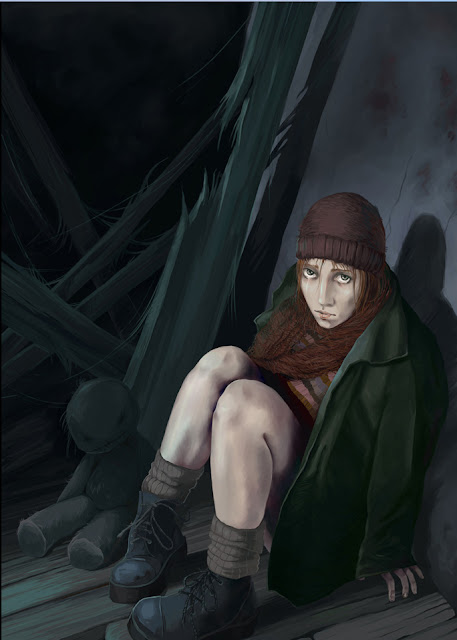Kevin: I'm glad you brought up the question of free will, because in the end that's what everything in Pathologic circles back to. The conversation with the Authorities, the final dilemma at the Cathedral, and (most important of all) the theatrical conceit on which the game is built—I believe that it's all designed to push the player to confront the implications of his or her ostensible freedom in the game world. Is it even possible to have true agency inside a world that is strictly defined by somebody else?
From the beginning, Pathologic made it crystal clear that I was not in control of the situation. It confronted me with fluctuating store prices, the relentless march of the in-game clock, and the casualty tally that skyrocketed regardless of my performance. It even went so far as to unambiguously spell out its inflexible, predetermined endpoint: "The morning of the second day has come. Less than eleven days remain." I was kept in a constant state of reaction to the world around me. Ice Pick Lodge made no bones about it: I was in their world now, and it would unfold as they, not I, saw fit. They were the directors; I was just an actor—or should I say gamer?—playing a character.
This is the key to the theatrical conceit running throughout the game, which means that it's the key to the game, period. The Rock Paper Shotgun review labels this aspect of Pathologic as "wussy thespianism," but I think that does it a disservice. It's only by using the language of theater—the realm of scripts and directors and fourth walls, the universe where blatant artifice is somehow given breath and life—that the game's ideas about free will and good vs. evil gain their peculiar resonance. Pathologic is one of the most unforgettable games I've ever played, and that's because it's not just a game but also a drama. It's a drama where the actors are continually made aware of the director's hand.
Not that this absolves you and me of responsibility for our actions. The thing that keeps Pathologic kicking around in my head, months after I finished playing it, is that it's not content merely to tell us that we're dolls at the mercy of some other being's whims. I mean, it does tell us that (in the meeting with the Authorities in the Polyhedron), but then it gives us back our agency. At the time, I called it "one of the most electrifying moments I've ever had as a gamer," and that's still true. In the meeting with the Developers at (where else?) the Theater, the circle closes, the switch is flipped on, and suddenly we see what all this was for.
Here the Developers gave me a chance to step fully into the shoes of the beaten-down, exhausted Haruspicus: "Yes, I am responsible for him. I will stay with him till the end. His words shall be my words. His deeds shall be my deeds." Essentially, I would become him, changing him from the Authorities' "scary doll" to a free agent, from a pawn to a queen. And lest anyone think this is a wholly positive, happy-ending choice that's out of keeping with the darkness of the rest of the game, remember that I took responsibility for everything the Haruspicus did. By choosing this path, I cast myself in the role of healer and rescuer, but I also became a cultist and a murderer. Free will is a double-edged sword.
Really, I think the game features one of the most elegant engagements with the Problem of Evil that I've ever seen in any medium. All the world's a stage, and while the director has put limits on what can happen, the player can still choose freely once the curtain rises: to protect the sets or tear them down, to support his fellow actors or destroy them. I was stuck in Ice Pick Lodge's game, but it was I and no other who chose how to act in that game. I had agency. I was responsible for the Haruspicus. His deeds—all of them, good and bad—were my deeds.
This is the beauty of Pathologic, but it's a complicated beauty. You and I, Duke, persevered to the end and saved the town, but we also committed a lot of sins on the way. We're not even sure we ultimately did the right thing. In its final scene the game pronounced victory for me, but I was still aware of the depths to which I could sink as I floated away from the closed-down theater into the void. There were stars in the void, but also plenty of darkness.
Stay tuned for a few more thoughts in the next few weeks. Read the full dialog or dig into our playthrough here [Bachelor or Haruspicus]. For those new to the blog, go here to see what we're all about. Feel free to put in your two cents in the comments, too.











































